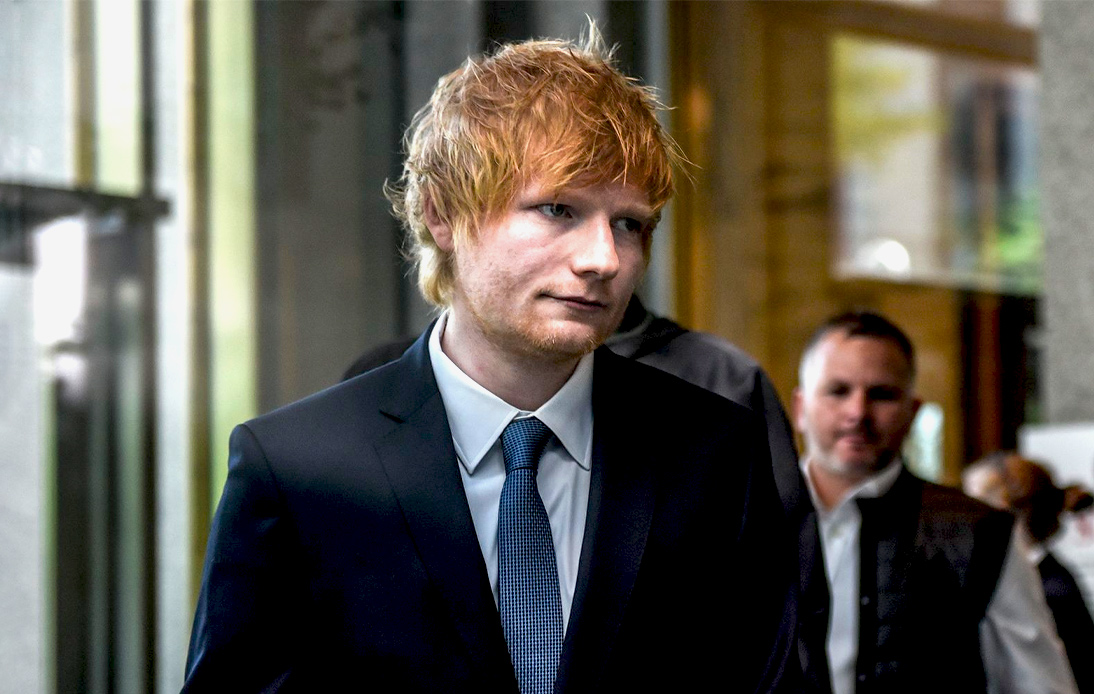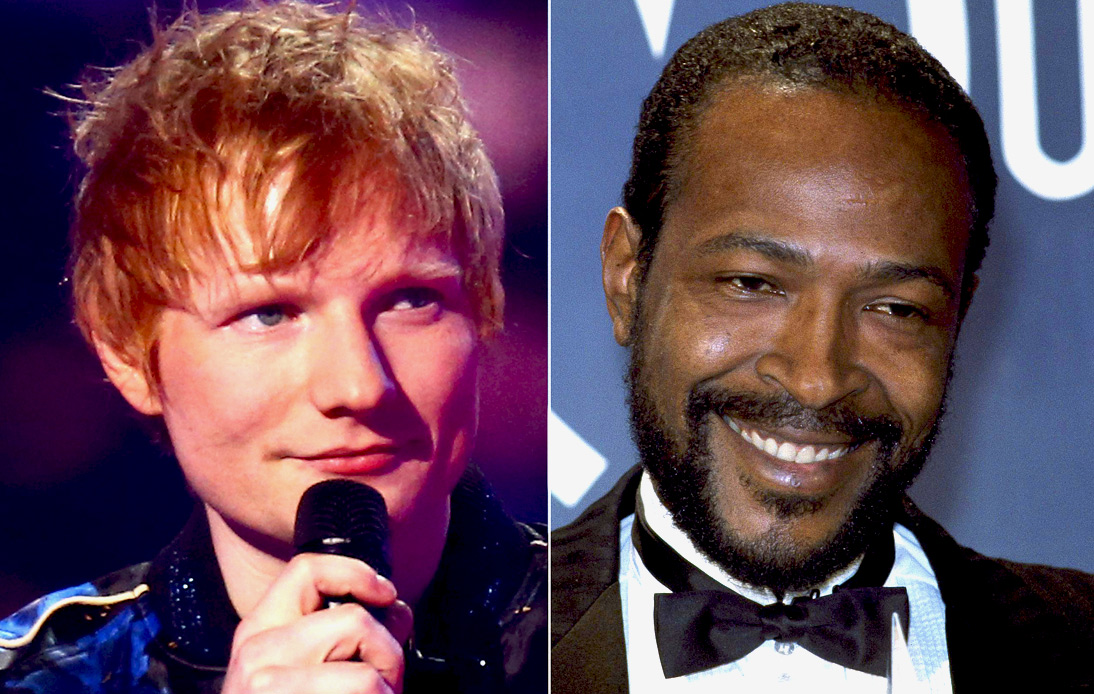
English musician Ed Sheeran appeared in a New York City court, refuting claims that his track “Thinking Out Loud” copied Marvin Gaye’s “Let’s Get it On.”
Heirs of Gaye’s collaborator, Ed Townsend, maintain that Sheeran, Warner Music Group, and Sony Music Publishing owe them compensation for purportedly plagiarizing the song.
At the case’s onset, an attorney referred to Sheeran’s incorporation of Gaye’s lyrics in his live shows as a “smoking gun.”
The 32-year-old Grammy winner asserted he did not duplicate Gaye’s 1973 success.
When attorney Keisha Rice inquired about another of Sheeran’s compositions, Take it Back, which includes the phrase “plagiarism is hidden,” Sheeran verified he had penned the words.
“Those are my lyrics, yep,” he stated, offering: “Can I give some context to them?”
Rice responded that if she needed context, she would request it, and proceeded to question him about footage from a Zurich concert in which he mixed lyrics from Gaye’s tune with Thinking Out Loud.
Previously, another lawyer representing the family – civil rights advocate Ben Crump – informed the court that the concert video constituted a “smoking gun” admission.
Sheeran replied that he occasionally blended songs with similar chords during his shows and seemed irritated when Ms. Rice interrupted him.
“I feel like you don’t want me to answer because you know that what I’m going to say is actually going to make quite a lot of sense,” he expressed.
“You could go from Let it Be to ‘No Woman, No Cry’ and switch back,” Sheeran continued under oath, alluding to the Beatles and Bob Marley classics.
“If I had done what you’re accusing me of doing, I’d be a quite an idiot to stand on a stage in front of 20,000 people and do that.”
In his opening statement, Mr. Crump “recognised the magic” of Gaye’s song and “decided to capture a bit of that magic for his own benefit.”
As the trial commenced on Tuesday, US District Judge Louis Stanton cautioned the seven-member jury that despite the presence of music in the courtroom: “We don’t allow dancing.”
The trial is anticipated to last a minimum of one week. If the jury deems the pop star responsible for copyright infringement, the trial will progress to a second phase to ascertain the amount he owes.
The legal proceedings coincide with Sheeran’s preparations for a North American stadium tour and a new album release.
Earlier on Tuesday, Sheeran’s lawyer contended that the two songs are distinct, and no artist should be permitted to “monopolise” common musical chord progressions.
“No one owns basic musical building blocks,” declared Ilene Farkas.
“The two songs share versions of a similar and unprotectable [sic] chord progression that was freely available to all songwriters,” his attorneys stated in a prior court document.
Mr. Townsend’s daughter, Kathryn Griffin-Townsend, testified before Sheeran, as reported by the New York Times.
The newspaper quoted her as praising Sheeran as “a great artist with a great future” and explaining to jurors that she filed the case reluctantly because “I have to protect my father’s legacy.”
This trial follows a year after Sheeran was cleared a London trial over allegations that he copied his hit song Shape Of You.
The claim regarding Thinking Out Loud was initially filed in 2018, not by Gaye’s family but by investment banker David Pullman and Structured Asset Sales (SAS), a company that acquired a share of Let’s Get It On co-writer Ed Townsend’s estate.
The plaintiffs are requesting $100m (£90m) in damages.
They claim that Sheeran and his co-writer Amy Wadge “copied and exploited, without authorisation or credit” the Gaye track, “including but not limited to the melody, rhythms, harmonies, drums, bass line, backing chorus, tempo, syncopation and looping”.
Amy Wadge, along with several expert musicologists, is anticipated to provide testimony during the New York trial.
This is not the sole legal battle Sheeran faces regarding Thinking Out Loud, which achieved the number one spot in the UK in 2014 and garnered song of the year at the 2016 Grammy Awards.
SAS has initiated a second lawsuit, currently on hold, while an additional case by a different section of Townsend’s estate awaits trial.





















